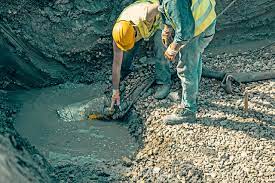Dewatering is a crucial process that allows construction and industrial work areas to dry and stabilize the soil. It also helps keep project timelines on track. Mechanical dewatering separates sludge (either residual sludge from wastewater treatment plants or fecal sludge from on-site sanitation) into solid and liquid parts. It requires an efficient pump and a good understanding of operating it effectively.
Lack of Knowledge
Removing water and dewatering sludge—residual sludge from wastewater treatment plants or fecal sludge from on-site sanitation facilities like pit latrines or septic tanks—makes it less costly and more accessible to transport, compost, incinerate, or dispose of in a landfill. Mechanical tools like centrifuges, presses, and filters can be used for dewatering. Choosing the proper mechanical dewatering equipment is vitally important. It must be designed to suit each wastewater treatment system’s specific conditions and constraints and the quality requirements of the residuals being treated.
One of the most common obstacles to success in mechanical dewatering is a need for more knowledge. It is a problem attributed to how we are taught, how information is shared in our workplaces, and how much access to expertise is available. It’s true when it comes to mechanical dewatering pumps. Understanding how each type works and how it can be optimized for various applications is essential.
Lack of Experience with Dewatering Pumps
A pump must be carefully selected based on application parameters such as suction lift, static discharge head, and required flow rates. Checking for trapped air in the casing and volute is also essential before operating a dewatering pump. Ensure that the recommended suction filter is installed to prevent clogging in the pump. Corrosion is another common problem faced by mechanical dewatering pumps. Even the best pumps will suffer from corrosion if they are not kept away from highly corrosive equipment and other highly corrosive materials. Using a sacrificial anode to increase cathodic protection can help extend a pump’s life.
Water removal is one of the construction site’s most commonly encountered temporary pump applications. It can occur during infrastructure installation when developing new industrial or residential areas. It is also an issue that can arise at job site foundations during excavation work. Whatever the situation, all pump applications have two critical elements in common: downtime and an unpredictable cost increase.
Lack of Equipment
Many mechanical dewatering equipment types exist, each suited to different sludge characteristics and operational parameters. For instance, belt presses operate at lower rotational speeds than centrifuges, which can result in less wear and tear. Selecting the best equipment to meet specific conditions and needs is essential to successful dewatering operations. Bench and pilot testing can yield valuable data that helps design a system that will effectively treat the specific quality of residuals.
Visiting and inspecting similar dewatering plants can also be helpful. It provides first-hand insights into the equipment currently in use, giving you a better idea of what to expect when operating the same equipment at your facility. It can help ensure you purchase the right equipment and that it is set up and operated correctly to maximize its effectiveness. The more effective the equipment, the drier the residuals and the lower the need for auxiliary fuels, cutting production plant costs and harmful emissions.
